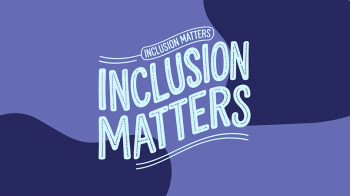Learning French opens doors to a world rich in culture, literature, and history. This language, which is official in over 30 countries, attracts millions of people worldwide. But how can one determine their proficiency and progress in learning? The answer is simple — through tests. Interestingly, France has developed a special evaluation system — DELF and DALF, which are identified internationally.
French language tests not only help assess current knowledge but also motivate further learning. They include various tasks, ranging from grammar exercises to listening and speaking tasks. For example, one might be asked to write an essay on the French Revolution or listen to and analyze a segment of an interview with a famous French writer. The platform for finding tutors, TeMa, is a service where we offer the chance to meet specialists and choose appropriate lessons. During your studies, you will enhance your language mastery and be able to take tests online regularly.
Interestingly, French, being the language of love, often attracts people with its melodic sound and expressions. Idiomatic phrases not only embellish the language but also make the learning process more engaging. Moreover, French is one of the working languages of the UN and many international organizations. Therefore, proficiency in French opens wide career prospects, especially in the fields of diplomacy and international relations. A French language test is an important tool that helps not only to check knowledge, but also to inspire further study of this beautiful language.
Types of French Language Tests and Their Importance
Learning French provides access to rich culture, history, and international opportunities. One of the key aspects of learning is testing, which allows for an objective assessment of proficiency and guides further learning. It is important to emphasize that French language tests for beginners are designed to introduce the basics and gradually deepen knowledge.
There are the following main types of tests:
- Grammar: These check the understanding of grammatical rules and the ability to apply them in practice.
- Vocabulary: These assess the ability to use words in context.
- Reading Comprehension: These check reading guts and figuring out written texts.
- Listening: These assess the perception of spoken language.
- Speaking: These check the ability to speak French, including pronunciation and conversational skills.
- Writing: These assess the ability to write in French on a given topic.
There are several main types of French language tests, each focusing on different aspects. Firstly, grammar tests check knowledge of grammatical rules and the ability to apply them in written and spoken language. For example, tasks might include conjugating verbs or using the correct prepositions. Vocabulary tests, in turn, assess the lexical stock and the ability to use words in context.
Reading comprehension tests check reading skills and translation of written texts. Students are asked to read an excerpt from an article or book and answer questions about its content. Listening tests evaluate the perception of spoken language. They may include listening to dialogues, interviews, or news segments, followed by answering questions about the material heard.
Taking tests online has become much more convenient thanks to the TeMa platform. We allow you not only to assess your skills, but also to select an individual learning program with a professional tutor.
Speaking tests check the ability to conduct a conversation in French, assessing pronunciation, grammar, and overall fluency. Usually, they include an interview with an examiner or the preparation of a monologue on a given topic. French language tests with answers play an important role in learning because they allow for an objective determination of the current level of knowledge, helping students and teachers adjust the curriculum.
Preparing for Tests: Secrets to Successfully Mastering Grammar and Vocabulary
Preparation for tests requires a systematic approach and the use of effective learning methods. Successfully mastering grammar and vocabulary is the key to confidence in exams and in life.
Regular repetition of grammatical rules is necessary for memorization and application. For example, you can keep a notebook where the main rules with examples are written. Conjugation of verbs, the use of prepositions, and sentence structure should all be at hand. Flashcards with verb forms and their translations are also useful for memorization. Vocabulary requires a different approach. It is useful to read books or watch movies in French, noting new words and phrases. Keeping a vocabulary journal helps systematize new words. You can record not only the translation but also examples of use in context, which significantly increases lexical experience.
For those who want to take a French language test for beginners, it is necessary to concentrate on the main aspects. Knowledge of numerals and basic verbs is necessary for successful communication. Don’t forget about practice with native speakers. The tutor search service TeMa can significantly advance speaking skills.
Effective Methods for Preparing for Grammar and Vocabulary Tests
Preparation demands a systematic approach and effective learning methods. Successfully mastering grammar and glossary is key to confidence in exams. Regular practice, leveraging modern technologies, and working with tutors, all help improve language knowledge. It is vital to find suitable tools and resources to make learning engaging and productive.
Let's consider several effective methods to help you prepare for a French language test:
- regular practice helps reinforce material;
- working with a mentor helps clarify complex topics;
- flashcards aid in memorizing new words and grammar rules;
- group sessions help improve communication skills and get feedback from other students.
Effective preparation requires diverse approaches and constant practice. Regular sessions and working with a tutor through the TeMa tutor search service help deepen knowledge and fill gaps.
Utilizing Tests in Learning to Enhance Language Proficiency
Tests can be taken not only for knowledge evaluation but also as a powerful learning tool. Firstly, self-assessment plays a crucial role: regular test-taking allows for progress monitoring and identifying knowledge gaps. Analyzing mistakes is also important. By carefully examining errors, one can understand what areas to focus on during further learning.
Tests serve as great motivators. Successful completion boosts confidence and encourages further language study. Research shows that students who regularly take tests feel more confident during exams. Online French tests are not only a means of assessment, but also an important learning element that helps achieve better results.
Common Mistakes During French Testing
During testing, students often make mistakes that can significantly impact their results. One of the most common mistakes is incorrect usage of tenses. French grammar offers a wide range of tense forms, and confusion between them can lead to unclear interpretation of text or tasks. Another common mistake is related to agreement between adjectives and nouns. For example, in the phrase “une grande maison” (“a big house”), the adjective “grande” should agree with the noun “maison” in gender and number.
Ignoring minor details can also cause errors. For instance, using the wrong article or preposition can change the meaning of a sentence. During oral tests, paying attention to correct pronunciation and intonation is especially important. Words should be pronounced clearly and distinctly to accurately convey thoughts. And of course, one of the most common mistakes is simple carelessness and misunderstanding of the task. Some students may rush and quickly read the instructions, leading to incorrect task completion.
By avoiding these common mistakes, you can successfully pass any exam. Remember, an online French language test with answers can be a great practice tool during learning.


-preview.png)